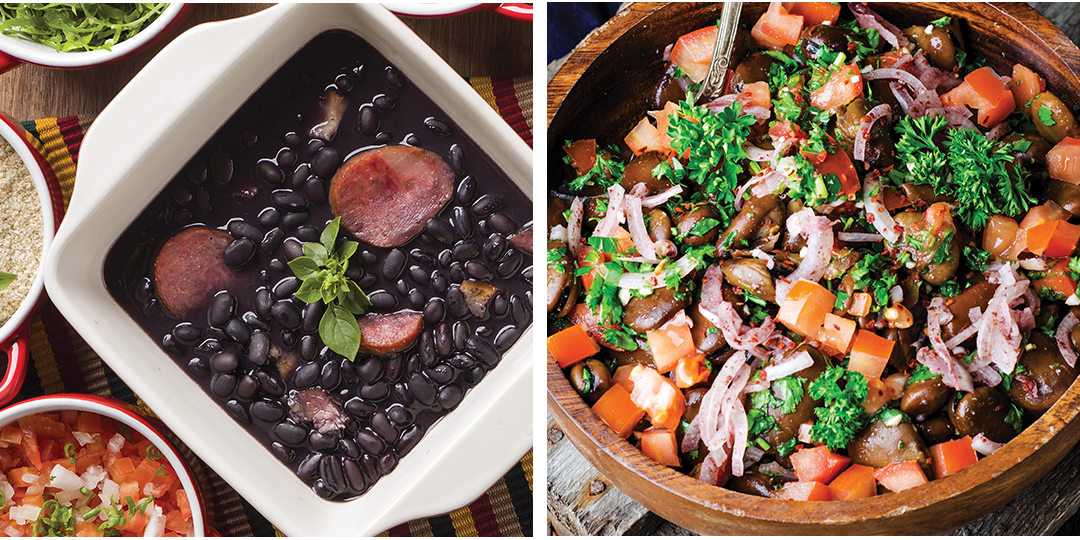And being a good guest entails more than just listening. “As a traveler, I believe in the ‘Grandma rule’—meaning when I go to Grandma’s house, I eat what Grandma puts on the table. I may not like Grandma’s food. It may even conflict with my personal beliefs. But I’m going to eat it,” he says. “If I find myself in a rice farmer’s one-room hut out in the Mekong delta and my earnest host suddenly appears with a platter of puppy heads, I’m gonna eat it. It’ll be really tough for me. But I will eat anything rather than offend my host.” Rejecting a sincere offer of food and hospitality, he explains, is tantamount to rejecting the person and their culture and everything their food represents. “It’s very personal, food, especially in a situation where people have very little. They worked for that food. It means a lot to them. You’re getting the best they have to offer.”

Left: Fūl is a staple Egyptian dish of cooked fava beans made with cumin, chili pepper, parsley, garlic, onion, lemon juice, and vegetable oil. Right: Feijoada is a pork and black bean stew considered a national dish of Brazil.
His determination to be a good guest has led Bourdain to be introduced to incredible dishes by hosts all over the world, from fūl in Egypt to feijoada in Brazil, the latter of which, he says, “originated as the scraps from the tables of the rich, leaving the poor to figure out, ‘What do I do with these things?’” And figure it out they did, eventually turning an ingredient list comprised of leftover pig’s feet, necks, snouts, and tongues mixed with black beans into a beloved national dish.
Never turn down an offer of a dish like feijoada, he urges. “If you say ‘No, no, no,’ you’re not just saying, ‘I’m not touching your food.’ You’re also saying, ‘I’m not interested in pursuing any kind of relationship with you.’ You’ve said a lot by saying ‘Ick.’”
Lasting lessons from travel
Throughout his years of travel, Bourdain acknowledges he’s been incredibly lucky. “I get to learn, experience, listen to people in countries that I used to only know from the news, to put a human face on adversaries.” That’s had an impact back home, as well. “I’ve learned to love my own country, or appreciate it in ways I hadn’t permitted myself to before,” he admits. “I’m a New Yorker, with all the predictable New York views on the world. But I am very, very comfortable in red-state America. I may not agree with you, but I still like you and respect you.”
Bourdain knows maintaining diplomacy while interacting with people from different cultures can be challenging. Whether you’re navigating competing politics in the United States or observing local dining customs in the Middle East, you need to do your homework, he says.
Learn at least the basics of hospitality in the places you’re traveling to. Understand that if you go to a sushi bar in Japan, make a slurry of wasabi and soy sauce, and soak your sushi in it rice-side down, “you’ve insulted the chef horribly. He hates you now. That relationship is over,” he insists. “This is an easily avoidable break in relations.”
So how can you avoid such a break? Read, Bourdain suggests—and not just nonfiction. “Of course, find out about the place, the history, and all that. But pick a classic work of fiction by somebody who actually lived and spent time there.” Like Graham Greene, a particular favorite of Bourdain’s, an author he describes as “a professional traveler who [also] wrote.” His novels give you a sense of “the smell, the personal dynamics, the atmospherics,” he says. “There’s always a novelist who kind of owns the territory and captured it in a unique and characteristic way, whether it’s New Orleans or Boston or Saigon.” So seek out those novelists, “but always check out Graham Greene first. He wrote books that take place in a lot of places, and they will enrich your experience.”




